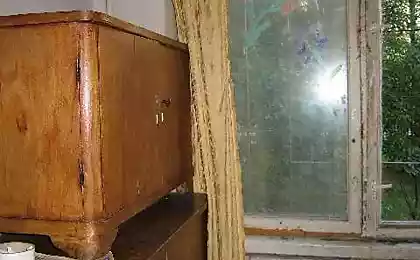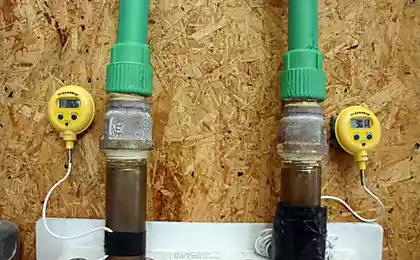236
Why did the master put his ear to the rattling refrigerator
It's no secret that we spend almost half of our "home" time in the kitchen. Here we cook, eat, meet guests, celebrate important events for us. And it's very annoying when all this happens to the accompaniment of the incessant hum and rattling in the refrigerator. How to tune your refrigerator to get rid of annoying noise? The answers are in our article.

© Depositphotos How to set up the refrigerator Why does the refrigerator make noise? All compression refrigerators generate noise in one way or another. After all, completely silent compressors have not yet been invented. Even absorption refrigerators without moving parts (I had one in Soviet times) periodically hiss and gurgle.

© Depositphotos If you are interested in a really silent refrigerator, then this is a thermoelectric one. But he is not devoid of shortcomings. This is a smaller volume compared to compressor refrigerators and more energy consumption.
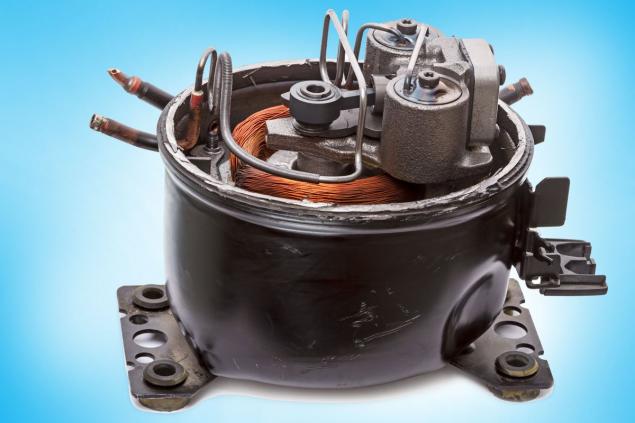
© Depositphotos However, any unit that generates a noise level of 30 dB is already considered almost silent. At the first time after installing a new refrigerator, the noise may be more than usual: the refrigerant fills the system, moving parts rub in, the temperature stabilizes.
But if even after some time the noise level remains high and interferes with your comfortable rest, and even more so does not allow you to fall asleep, you need to look for the reason. And there may be several of them.
Installation space Trying to save space in small kitchens, we often install the refrigerator in a narrow niche or right next to a wall. This forces the compressor to run at its maximum capacity. After all, the heat from the radiator in the back simply has nowhere to go.
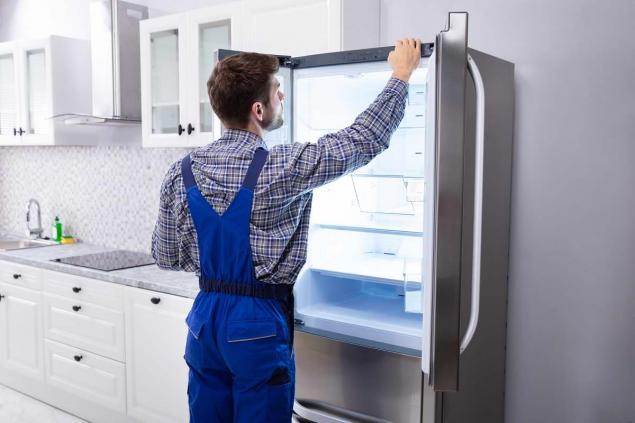
© Depositphotos According to the rules, the distance between the radiator of the refrigerator and the nearest wall should be at least 5 cm. In summer, it is recommended to increase it to 10 cm. This will make the cooling more efficient and the compressor quieter.
It should also be taken into account that in real conditions we hear noise reflected from the floor and walls. In a spacious kitchen, the same noise will be perceived as quieter than in a cramped one. Concrete walls and floors reflect sound more. Covered with a soft surface - less.
Vibration from the compressor For good, when installing the refrigerator, it should be leveled. To do this, you need to twist the adjustable legs one by one, referring to the readings of the building level. Of course, the floor should be as flat as possible.
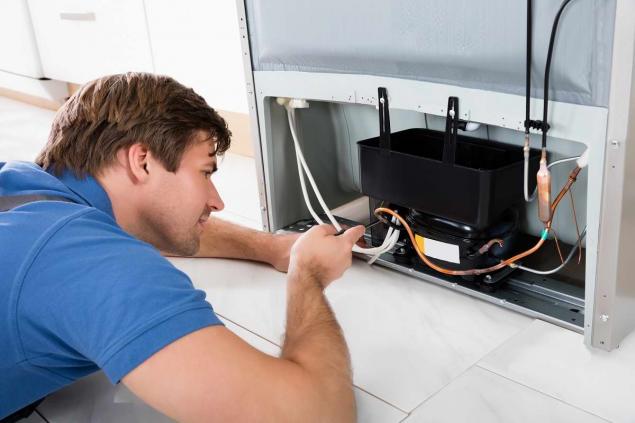
© Depositphotos As we said before, the compressor contains moving parts, which is why it vibrates. If it comes into direct contact with the housing or the tubes from the compressor to the radiator come in contact with it, the noise increases many times over.
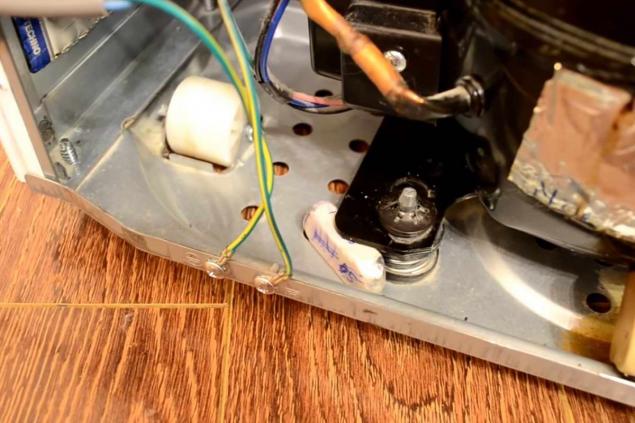
Depending on the situation, the tubes can be bent or, for example, insulated with polyethylene foam, securing it with ties. Sometimes it is enough to just insert a simple stationery eraser between the compressor support and the bottom of the refrigerator.
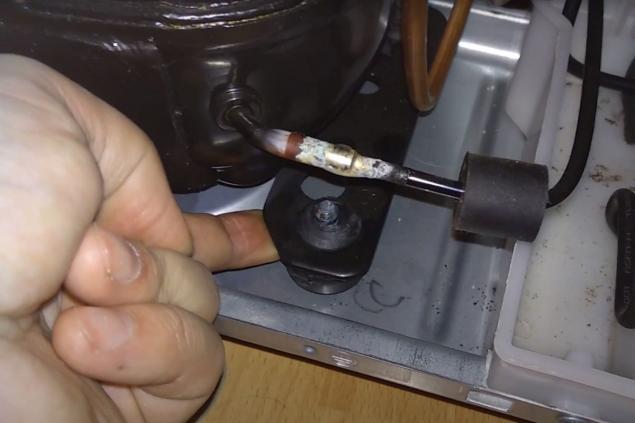
It happens that to reduce the noise, the bolts on which the compressor is held must be loosened or tightened. Also, over time, gaskets on the rods of fastening the compressor to the housing often become unusable. And in order to return silence to the kitchen, it is enough to replace them with suitable rubber seals purchased at the nearest plumbing store.
Fan problem The No Frost system removes moisture from the refrigeration chambers, preventing frost from forming. This is achieved thanks to the air circulation created by a special fan, which is also a source of noise.
Sometimes the lubricant in the fan bearings dries up and needs to be replaced. Or a layer of ice freezes, to which the blades cling. This can be caused by a leakage of the seal or a breakdown of the heating element of the evaporator.
It is needed in order not to defrost the refrigerator and freezer compartments manually. The system promotes the circulation of air flows throughout the unit and removes fluid from the chambers.
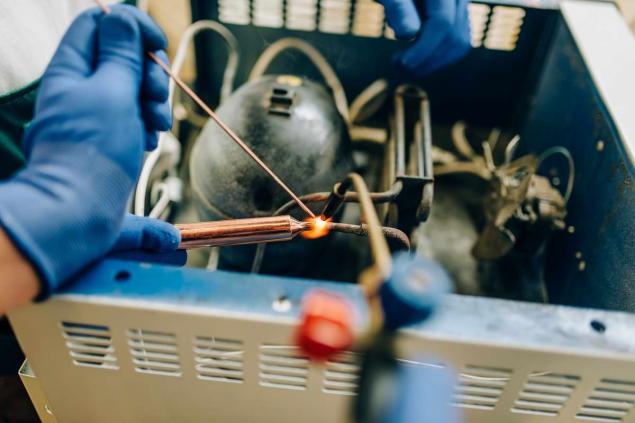
© Depositphotos If the refrigerator is installed according to all the rules, and the vibration from the compressor is not transmitted to the case, but the unpleasant noise does not disappear anywhere, it is better to contact a specialist. He will diagnose and eliminate the cause of the breakdown.

© Depositphotos How to set up the refrigerator Why does the refrigerator make noise? All compression refrigerators generate noise in one way or another. After all, completely silent compressors have not yet been invented. Even absorption refrigerators without moving parts (I had one in Soviet times) periodically hiss and gurgle.

© Depositphotos If you are interested in a really silent refrigerator, then this is a thermoelectric one. But he is not devoid of shortcomings. This is a smaller volume compared to compressor refrigerators and more energy consumption.

© Depositphotos However, any unit that generates a noise level of 30 dB is already considered almost silent. At the first time after installing a new refrigerator, the noise may be more than usual: the refrigerant fills the system, moving parts rub in, the temperature stabilizes.
But if even after some time the noise level remains high and interferes with your comfortable rest, and even more so does not allow you to fall asleep, you need to look for the reason. And there may be several of them.
Installation space Trying to save space in small kitchens, we often install the refrigerator in a narrow niche or right next to a wall. This forces the compressor to run at its maximum capacity. After all, the heat from the radiator in the back simply has nowhere to go.

© Depositphotos According to the rules, the distance between the radiator of the refrigerator and the nearest wall should be at least 5 cm. In summer, it is recommended to increase it to 10 cm. This will make the cooling more efficient and the compressor quieter.
It should also be taken into account that in real conditions we hear noise reflected from the floor and walls. In a spacious kitchen, the same noise will be perceived as quieter than in a cramped one. Concrete walls and floors reflect sound more. Covered with a soft surface - less.
Vibration from the compressor For good, when installing the refrigerator, it should be leveled. To do this, you need to twist the adjustable legs one by one, referring to the readings of the building level. Of course, the floor should be as flat as possible.

© Depositphotos As we said before, the compressor contains moving parts, which is why it vibrates. If it comes into direct contact with the housing or the tubes from the compressor to the radiator come in contact with it, the noise increases many times over.

Depending on the situation, the tubes can be bent or, for example, insulated with polyethylene foam, securing it with ties. Sometimes it is enough to just insert a simple stationery eraser between the compressor support and the bottom of the refrigerator.

It happens that to reduce the noise, the bolts on which the compressor is held must be loosened or tightened. Also, over time, gaskets on the rods of fastening the compressor to the housing often become unusable. And in order to return silence to the kitchen, it is enough to replace them with suitable rubber seals purchased at the nearest plumbing store.
Fan problem The No Frost system removes moisture from the refrigeration chambers, preventing frost from forming. This is achieved thanks to the air circulation created by a special fan, which is also a source of noise.
Sometimes the lubricant in the fan bearings dries up and needs to be replaced. Or a layer of ice freezes, to which the blades cling. This can be caused by a leakage of the seal or a breakdown of the heating element of the evaporator.
It is needed in order not to defrost the refrigerator and freezer compartments manually. The system promotes the circulation of air flows throughout the unit and removes fluid from the chambers.

© Depositphotos If the refrigerator is installed according to all the rules, and the vibration from the compressor is not transmitted to the case, but the unpleasant noise does not disappear anywhere, it is better to contact a specialist. He will diagnose and eliminate the cause of the breakdown.
How do zodiac signs behave with those who can not tolerate
A budget option for a festive snack "out of nothing"




